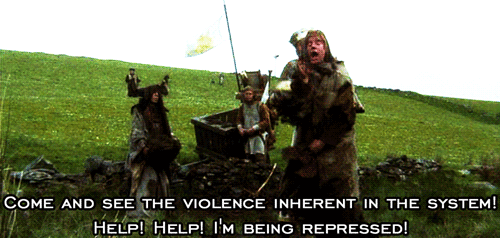“Roughly a quarter of the world’s people—some 1.8 billion—have turned 15 but not yet reached 30,” reports The Economist.
In many ways, they are the luckiest group of young adults ever to have existed. They are richer than any previous generation, and live in a world without smallpox or Mao Zedong. They are the best-educated generation ever—Haitians today spend longer in school than Italians did in 1960. Thanks to all that extra learning and to better nutrition, they are also more intelligent than their elders. If they are female or gay, they enjoy greater freedom in more countries than their predecessors would have thought possible. And they can look forward to improvements in technology that will, say, enable many of them to live well past 100.
So how can these youngsters be described as “oppressed”?
Many of their woes can be blamed on policies favouring the old over the young. Consider employment. In many countries, labour laws require firms to offer copious benefits and make it hard to lay workers off. That suits those with jobs, who tend to be older, but it makes firms reluctant to hire new staff. The losers are the young. In most regions they are at least twice as likely as their elders to be unemployed. The early years of any career are the worst time to be idle, because these are when the work habits of a lifetime become ingrained. Those unemployed in their 20s typically still feel the “scarring” effects of lower income, as well as unhappiness, in their 50s.
Housing, too, is often rigged against the young. Homeowners dominate the bodies that decide whether new houses may be built. They often say no, so as not to spoil the view and reduce the value of their own property. Over-regulation has doubled the cost of a typical home in Britain. Its effects are even worse in many of the big cities around the world where young people most want to live. Rents and home prices in such places have far outpaced incomes. The youngsters of Kuala Lumpur are known as the “homeless generation”. Young American women are more likely to live with their parents or other relatives than at any time since the second world war.
Young people are often footloose. With the whole world to explore and nothing to tie them down, they move around more often than their elders. This makes them more productive, especially if they migrate from a poor country to a rich one…[And yet,] many governments discourage not only cross-border migration but also the domestic sort. China’s hukou system treats rural folk who move to cities as second-class citizens. India makes it hard for those who move from one state to another to obtain public services. A UN study found that 80% of countries had policies to reduce rural-urban migration, although much of human progress has come from people putting down their hoes and finding better jobs in the big smoke. All these barriers to free movement especially harm the young, because they most want to move.
…[M]any governments favour the old: an ever greater share of public spending goes on pensions and health care for them. This is partly the natural result of societies ageing, but it is also because the elderly ensure that policies work in their favour. By one calculation, the net flow of resources (public plus private) is now from young to old in at least five countries, including Germany and Hungary. This is unprecedented and unjust—the old are much richer.
…The young are an oppressed minority—albeit an unusual one—in the straightforward sense that governments are systematically preventing them from reaching their potential. That is a cruel waste of talent. Today’s under-30s will one day dominate the labour force. If their skills are not developed, they will be less productive than they could be…What is more, oppressing youngsters is dangerous. Countries with lots of jobless, disaffected young men tend to be more violent and unstable, as millions of refugees from the Middle East and Africa can attest.
We tend to forget that “the poor” often means “the young.”
